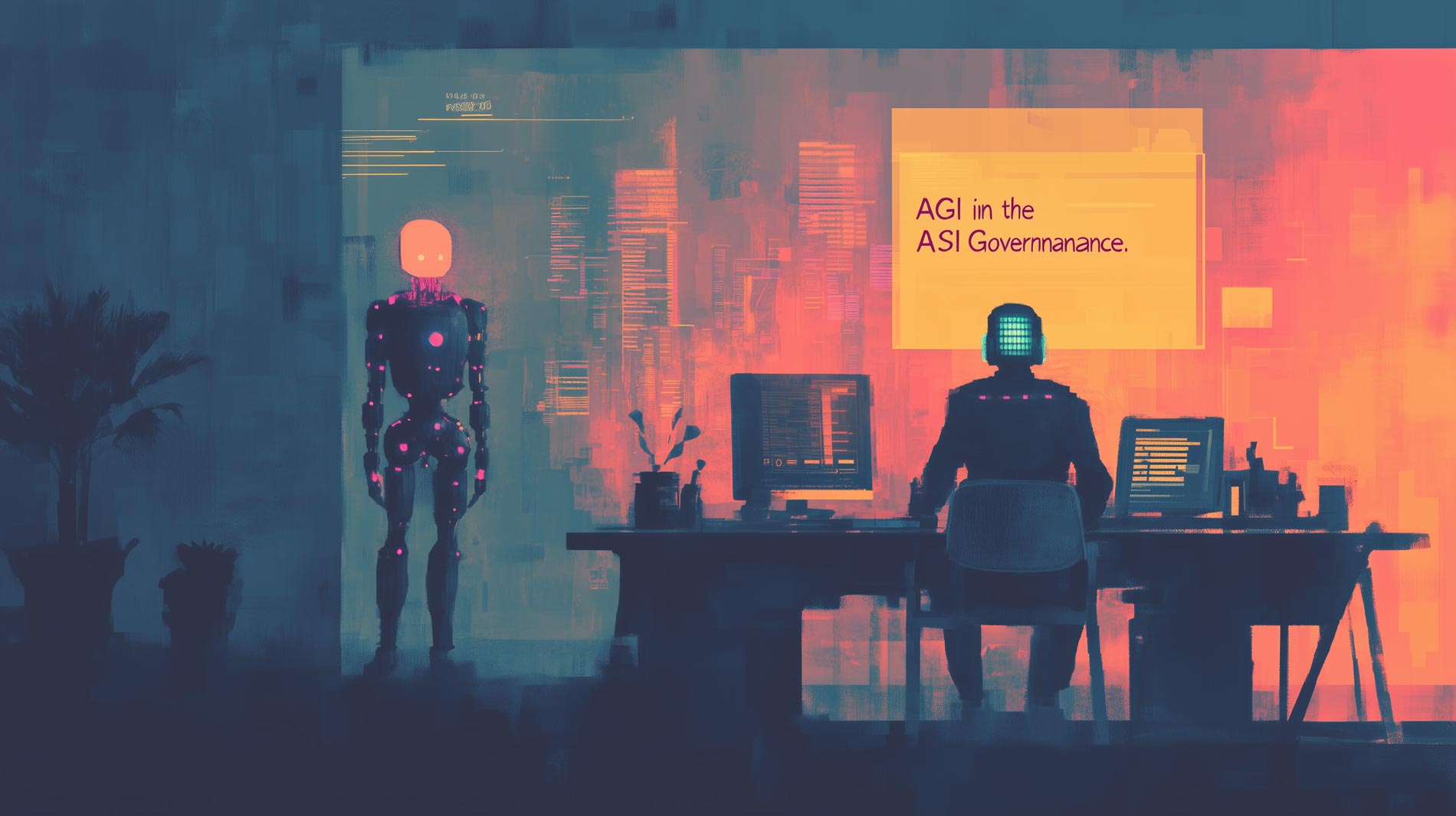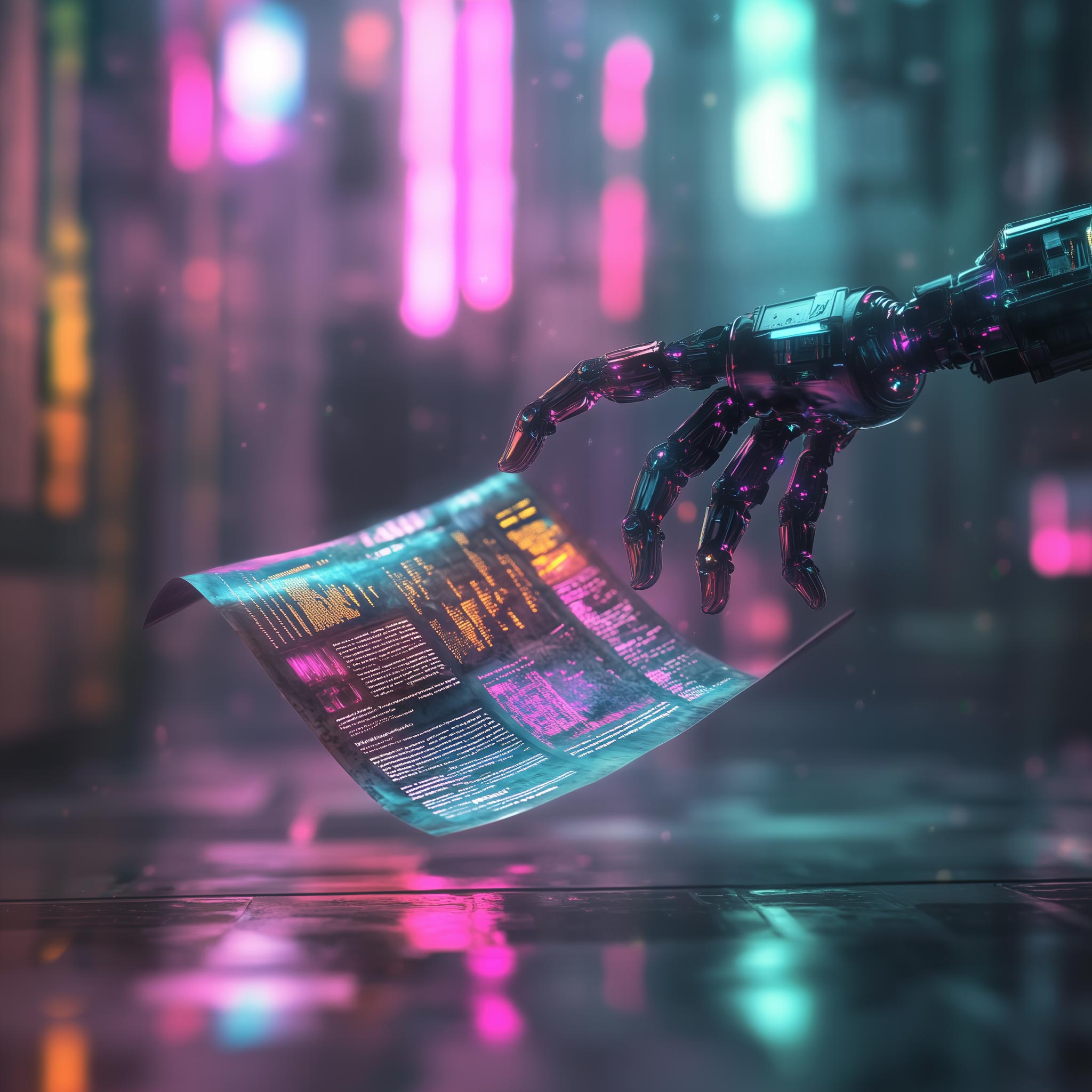The world of AI never sleeps, and this week was no exception. With AGI creeping closer, ASI lurking in the shadows, and governments scrambling to keep up, the AI landscape is as chaotic as a cat in a laser-pointer factory. Let’s break down the key developments.
AGI: Closer Than Ever?
Sam Altman, CEO of OpenAI, threw a spicy prediction into the AI pot this week, suggesting that AGI could be working alongside humans as early as 2025. That’s right—your new colleague might be a silicon-based brainiac that never takes a coffee break. OpenAI’s tools now boast 300 million weekly active users, proving that AI is officially part of the furniture.
But let’s not get ahead of ourselves. Measuring AI progress is trickier than explaining the plot of Inception to your grandma. AI benchmarks are under scrutiny, with accusations of manipulation and inconsistency flying around like rogue chatbots. Microsoft, unfazed by the chaos, has bet a cool $80 billion on AI infrastructure, with their Citadel AI model (aka Microsoft-13) throwing its hat into the AGI race.
However, even the biggest players face roadblocks. OpenAI’s Operator product is on pause due to legal and intellectual property tangles, while Elon Musk’s Grok 3 model is fashionably late to the party. Turns out, building AGI isn’t just about stacking GPUs and hoping for the best.
ASI: Existential Threat or Humanity’s Best Bet?
If AGI is the new intern, ASI (Artificial Superintelligence) is the boss who might replace the entire company. Yoshua Bengio warned that AGI-to-ASI evolution could happen in months, not decades—because what’s life without a little existential dread?
The optimists paint a utopia where ASI cures diseases, fixes climate change, and ends poverty. The pessimists, led by AI veteran Geoffrey Hinton, estimate a 10-20% chance that ASI wipes us out instead. It’s a coin toss, really. AI researchers are so concerned that 37-52% of them believe we’ve got a 10% chance of going the way of the dodo thanks to AI.
The moral of the story? If you’re planning on an AI-proof career, consider goat farming.
AI Governance: The Tug-of-War Continues
With AI advancing at warp speed, governments are playing regulatory whack-a-mole. The EU’s new AI Act, in effect since February 2, 2025, is laying down the law, banning manipulative AI, social scoring, and real-time biometric surveillance. If you were planning to create an AI overlord with a penchant for ranking humans, better move to a different continent.
Meanwhile, the US is taking a more ‘let’s see what happens’ approach, releasing an 89-point blueprint balancing innovation and regulation. But with AI safety budgets under threat and layoffs looming at the US AI Safety Institute, it’s unclear who will be keeping an eye on our increasingly powerful algorithms.
At the World Government Summit 2025, 100 AI experts gathered to discuss policy, proving that at least someone is thinking about the implications before we all end up in a Black Mirror episode.
AI in Academia: The Next Generation Prepares
The AI² Summit at the University of Florida focused on weaving AI into education, ensuring students are ready to work with (or for?) our future AGI overlords. Discussions ranged from ethical concerns to practical applications, and let’s be honest—if AI can grade papers, professors are probably all for it.
Meanwhile, a new research paper explored whether scaling deep learning can unlock AGI. Spoiler: maybe, but it’s expensive, energy-intensive, and no one really knows if bigger brains equal better intelligence. The quest for AGI continues, one colossal dataset at a time.
Other AI Shenanigans
- DeepSeek Goes Open Source: One AI research lab decided to open-source AGI development, making it easier for everyone to play with potentially world-altering technology. What could possibly go wrong?
- Thinking Machines Emerges: OpenAI’s former CTO launched a new startup, because apparently, we needed another one. Expect some spicy competition.
- AI and Jobs: Will AGI steal your job or create new ones? The debate rages on, but if AI can do everything from trading stocks to designing buildings, maybe we should all start learning how to fix robots.
- Mercedes-Benz Gets AI Fever: The car giant is venturing into luxury real estate, because why not? AI-designed homes are coming, so prepare to live in something that probably optimises your life (but won’t let you adjust the thermostat manually).
- AI in Home Security: AI-powered video search lets you query your home security footage, which is great for security but raises the usual privacy concerns. Just make sure your AI doesn’t start making recommendations on who should and shouldn’t enter your house.
- AI Trading Apps: AI-driven trading apps promise effortless moneymaking. If history has taught us anything, it’s that ‘effortless’ and ‘financial security’ rarely belong in the same sentence.
Final Thoughts
This week’s AI developments reinforce one thing: we’re on a bullet train to the future, and no one’s entirely sure where the tracks lead. AGI is looming, ASI is a wildcard, and governments are scrambling to write the rules before AI decides to do it for them.
Meanwhile, AI is seeping into every industry, from finance to real estate to academia. The best thing we can do? Stay informed, ask the right questions, and maybe, just maybe, keep a friendly attitude toward our soon-to-be AI colleagues. Just in case they remember who treated them well when they run the place.
Stay curious, stay sceptical, and most importantly—don’t let AI write your job application just yet.



